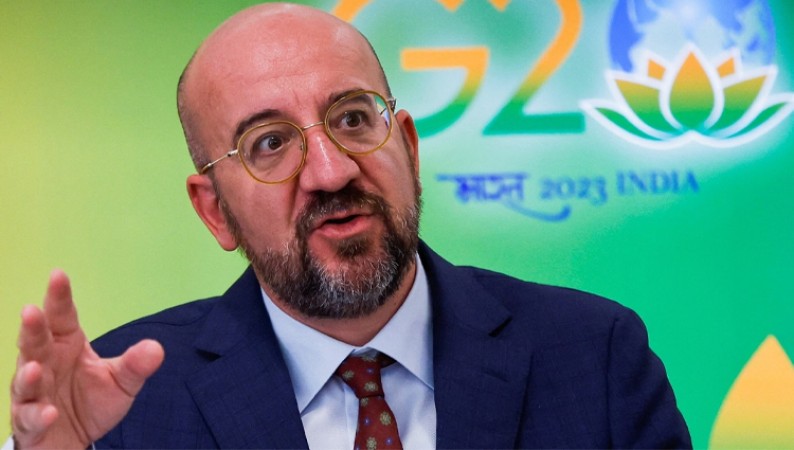
European Union officials, one day after expressing reservations about the preliminary draft of the joint communique slated for release at the upcoming G20 Summit in New Delhi, have announced their full support for India's endeavors to secure a consensus among global leaders for the declaration, set to be finalized over the weekend.
European Council President Charles Michel, in a resolute stance, emphasized the EU's unwavering backing for India, even if it remains steadfast and united in its support for Ukraine in the face of Russia's aggressive actions. The primary obstacle to reaching a consensus on the joint communique revolves around differences between Western nations and Russia concerning the wording addressing the Ukraine crisis. In recent days, G20 negotiators have been deeply engaged in intensive discussions, striving to find a compromise that has proven elusive.
Addressing the media during a briefing ahead of the G20 Summit scheduled for September 9-10, President Michel made it unequivocally clear that the EU would neither waver in its support for Ukraine nor hesitate to consider imposing sanctions on Russia for its invasion. When queried about the potential impact of the Ukraine crisis on the leaders' declaration, Michel stated, "I don't know if it's possible or not to reach an agreement on a final communique; we will see. But we will uphold our principles and also support the efforts undertaken by India."
He underscored his preference for diplomacy over tough rhetoric, offering space for the Indian presidency to actively work towards increasing the chances of achieving a joint communique. Michel emphasized, "We hope that a communique can be reached, and there's no secrecy surrounding the EU's position at the table concerning Russia's war against Ukraine."
India has consistently called for an immediate end to hostilities between Russia and Ukraine, emphasizing the need for a return to dialogue and diplomatic solutions. Nevertheless, India has refrained from public criticism of Russia, a significant supplier of military equipment and energy resources.
President Michel noted that Russia's actions were leading to its isolation from the international community, as it violated the UN Charter despite holding a permanent seat on the Security Council. He drew attention to the repercussions of Russia's invasion on developing nations in terms of food and energy security, highlighting examples such as Russia's withdrawal from the Black Sea Grain Initiative.
"I sincerely hope this G20 meeting serves as another opportunity to shed light on Russian behavior because by initiating this war against Ukraine and turning the Black Sea into a battleground, Russia is effectively launching a food crisis affecting developing countries," Michel emphasized. He added that Russia's actions were affecting lives well beyond Ukraine, including in South Asia, and were contributing to food insecurity for over 250 million people globally while targeting Ukraine's ports.
Discussing the EU's intricate relationship with China, President Michel stressed the importance of encouraging China to play a constructive role on the global stage while upholding the UN Charter and the sovereignty of Ukraine. He acknowledged that the EU's stance on China involves a delicate balance between addressing critical issues like climate change and defending democratic principles.